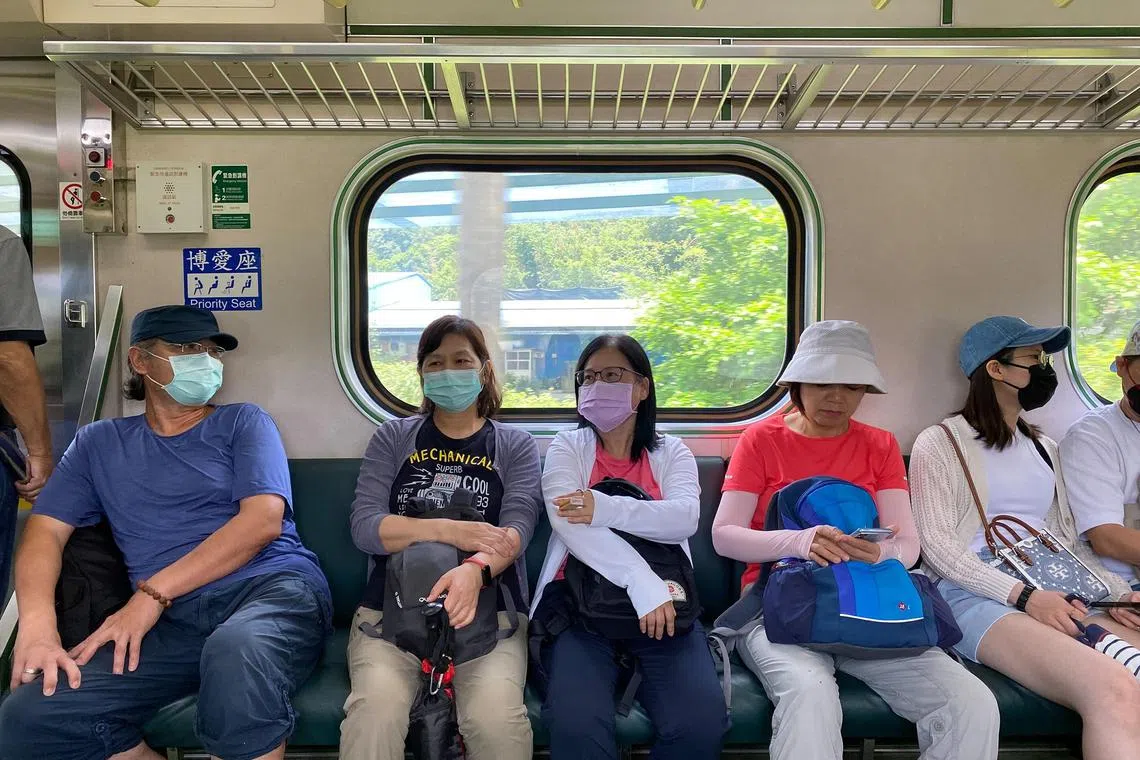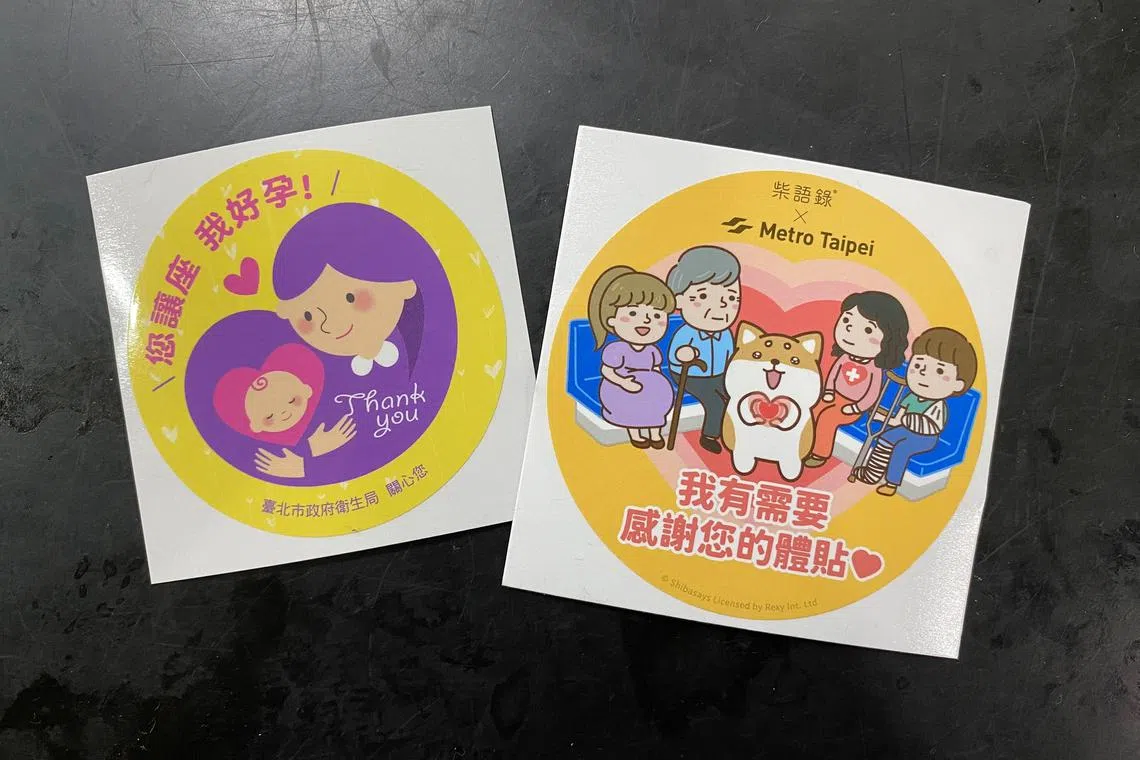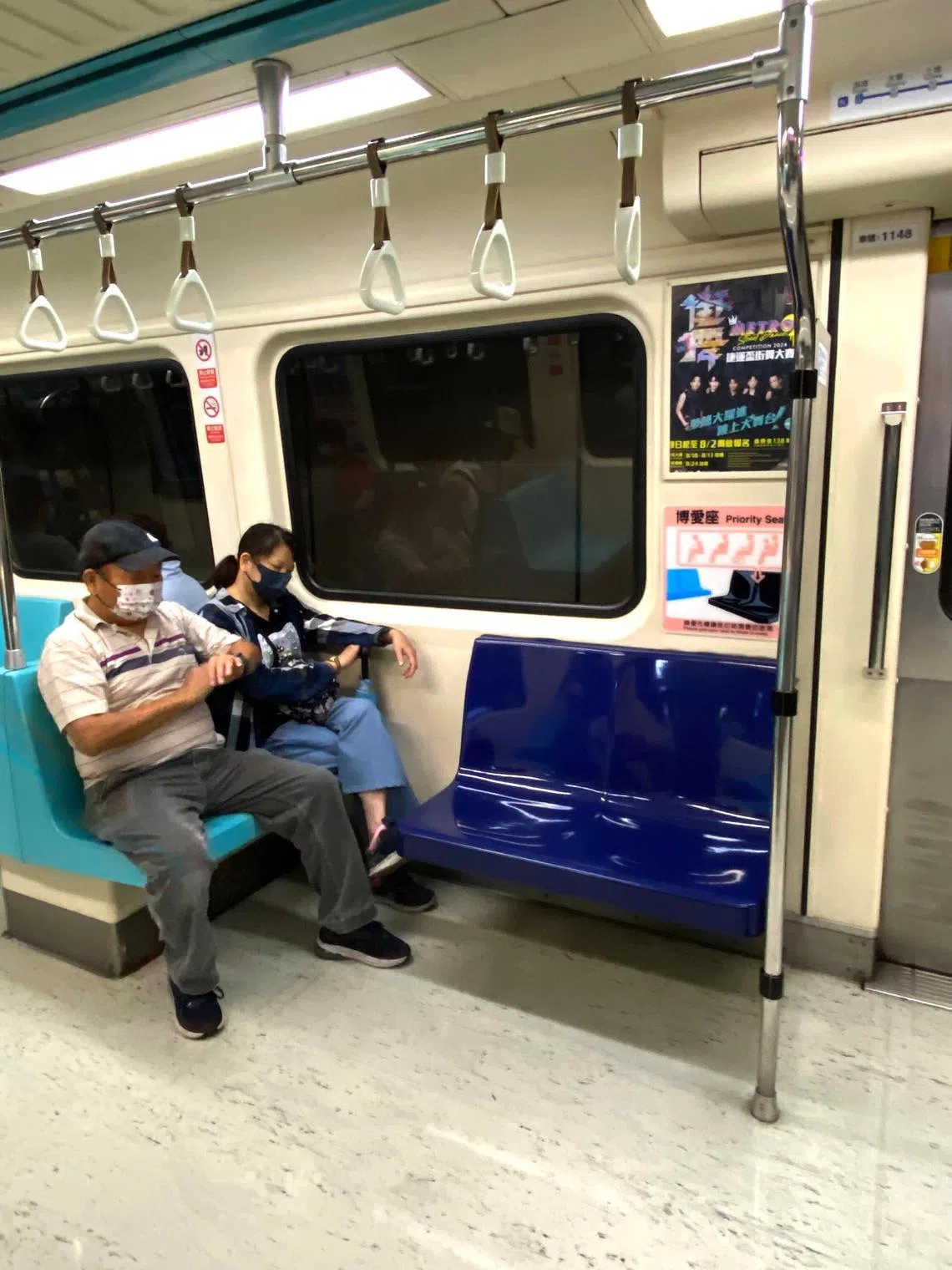‘Those with actual needs’: Taiwan mulls over revising priority seat rule after metro, bus disputes
Sign up now: Get insights on Asia's fast-moving developments

Currently, priority seats are reserved for the “disabled, elderly, women, and children”.
ST PHOTO: YIP WAI YEE
TAIPEI – Taiwan is planning to amend regulations to make clear that priority seats on public transportation may be used by anyone who needs them, after a recent spate of aggressive confrontations between younger passengers and senior citizens.
Currently, the People with Disabilities Rights Protection Act stipulates that priority seats – which should take up at least 15 per cent of total seats on public transport systems – are reserved for the “disabled, elderly, women, and children”.
The Ministry of Health and Welfare is now looking at replacing that wording with “those with actual needs”, thereby officially expanding access to such priority seats.
It is unclear how this would be defined or how changes would be implemented.
“Our team will continue to discuss and look at how to do a better job at addressing the people in need, and show the love in our society,” Health Minister Chiu Tai-yuan told reporters on June 20.
The debate over priority seat allocation is in the spotlight after Taiwan saw at least three clashes over such seats in the past two weeks alone. All of them involved elderly passengers getting angry when younger people declined to give up their seats.
On June 11, a 25-year-old woman travelling on Taipei’s red metro line refused to give her seat to an 80-year-old woman, saying she was exhausted following a 12-hour shift at work. When an elderly man attempted to intervene, the younger woman pushed him out of frustration.
After the three people alighted at the next station, the younger woman, visibly distressed, began bashing her own head against a station pillar until she bled.
A week later, on June 18, an elderly man grabbed the head of a 19-year-old on Taipei’s green metro line after the teenager refused to yield his seat to him. The youngster claimed that he needed to sit as he was suffering a bout of diarrhoea.
On the same day, an elderly man riding a bus in Keelung – a port city 40 minutes away from Taipei – repeatedly demanded that a younger man give up his seat. Other passengers got involved, and the situation escalated into a shouting match.
According to Taiwan’s Central News Agency, the incidents are among 22 reported disputes so far in 2024 between passengers over priority seats.
Taipei Mayor Chiang Wan-an told reporters on June 19 that the city government would work with the central government on how to make priority seats on the metro more inclusive.
Mr Chiang hoped that the few negative incidents would not overshadow the intended purpose of priority seats, saying that usage should be guided “by goodwill and courtesy”.
Netizens debated whether such priority seats should be removed altogether.
“That way, no single person, such as an elderly man, would feel entitled to them,” a Facebook user wrote.
Others pointed out that Taipei Metro passengers can request special pregnancy or “I have needs” stickers from station offices and paste them on their clothes to signal that they need a seat. These stickers, introduced in 2007, are designed for passengers who may appear physically healthy but require a seat.

The Taipei Metro provides free stickers for passengers to use to indicate that they need a seat.
ST PHOTO: YIP WAI YEE
However, web designer Chiang Tsung-lin, 33, who has commuted to work at least five days a week for the past three years, had “no idea” that such stickers existed.
“I have never seen anyone wear these stickers before. People usually just rush to sit down if they need to,” he said.
This is not the first time that the issue of priority seats has sparked controversy. It surfaces every few years in Taiwan, usually triggered by an incident that goes viral on social media.
That is similar to Singapore, where some viral videos over the years have raised discussions about priority seats.
In February, two women on the MRT were filmed arguing about a priority seat in a clip that has racked up two million views. The incident sparked debate on whether such seats should go to the elderly or those who feel exhausted.
In Taiwan, the Health Ministry proposed a draft amendment back in 2022 to change the wording in the Act to cover those “with actual needs”, but no consensus was reached before the legislature changed hands.

Priority seats on the Taipei metro are dark blue in colour.
ST PHOTO: YIP WAI YEE
As new lawmakers were sworn in on Feb 1, any draft amendments must now be resubmitted for consideration, said the health minister, who added that the ministry will submit a new draft as soon as possible.
However, Professor Wang Shun-min from the Department of Social Welfare at Taiwan’s Chinese Culture University said that simply changing the wording is “missing the point” as it is unlikely to solve the problem.
He suggested that the government should focus instead on promoting values like kindness and compassion, for instance, through education.
“We shouldn’t be looking at the issue through a legal perspective – we should be looking at our societal values,” he told The Straits Times.
“Are we a society of people who care enough to willingly give up seats to those who need them, or do we feel forced to do it?”



